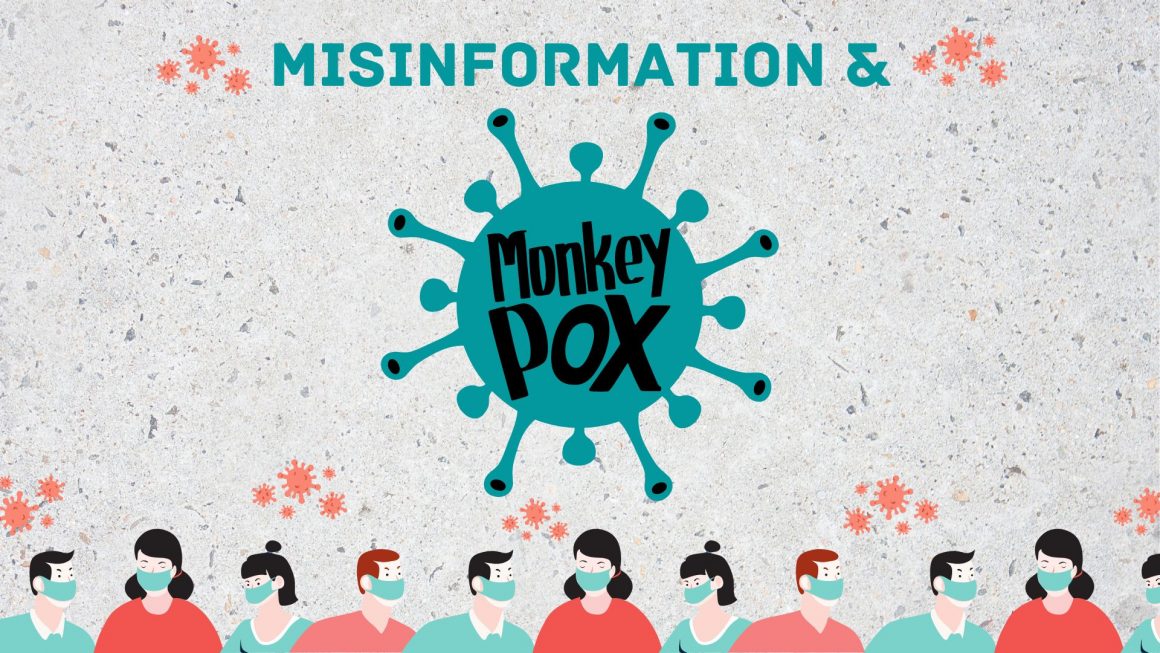
Monkeypox and the contagion of misinformation
By Amanda Wilson, September 15 2022—
With the utility of the internet, access to information is endless — but paradoxically misinformation is as well. The comment sections of news articles and scientific journals are filled with users who claim to be experts in the topics. Even worse, opinion forums and algorithms thrive off and connect users who would rather seek confirmation bias than proven facts. Riding off the same misinformation sources as COVID-19, monkeypox has become the latest health emergency to suffer from widespread lies.
On July 23, 2022, the World Health Organization (WHO) had declared monkeypox to be a global health emergency. The term “monkeypox” is frightening enough on its own, but fear mongering terms are easily attached to certain groups to create a negative connotation. For example, there has been a spike in Asian-targeted hate crimes after Donald Trump had titled COVID as the “Kung-flu” — in reference to the virus originating in China.
Public figures and media outlets hold immense influence when discussing sensitive topics and the populations that these topics affect. The responsibility in framing these topics is insurmountable, as a seemingly innocent joke may result in a tidal wave of negative consequences.
Rheotric related to monkeypox has been especially detrimental to gay, bisexual men and their community because there has been immense misinformation surrounding its spread, which in turn has created a negative stigma towards gay and bisexual men. Because monkeypox disproportionately affects the gay community, resources to prevent the spread of the disease continue to be difficult to access.
It is true that the surge in monkeypox cases is new, but the disease was first discovered in 1958 — with the first human case discovered in 1970. Before the disease had spread internationally, it had only been seen in small outbreaks in central and western African countries.
The largest subject of debate relating to monkeypox is whether it is an STD or not. Based on current information, medical professionals acknowledge that it is men who have sex with other men that are at a higher risk of contracting this disease. It is also suspected that 95 per cent of those who have contracted disease have been in close contact with confirmed cases of monkeypox. However, disease specialists also believe that the disease has only just begun to spread rapidly through intercourse — meaning the disease has evolved and will continue to spread unless contained.
Because the monkeypox outbreak in the West has been closely associated to gay men, I can not help but think back to the affect that the 1980s HIV/AIDS pandemic that had negatively stigmatized gay men. As we now know HIV/AIDS is not a disease that only effects gay men as its spread does not discriminate. It has been reported that there has been a rise in anti-gay sentiments since monkeypox has been declared an emergency.
I had found that one of the strongest statements regarding discrimination and monkeypox came from John Oliver, when he had discussed the emergency in an episode of Last Week Tonight.
“It is not homophobic to acknowledge who is currently most affected, which is gay and bisexual men, sex workers, and people who participate in sex with multiple partners,” said Oliver “What is homophobic is when you blame or shame the people who are suffering or when you decide you don’t need to care about this because you don’t see their lives as valuable or their suffering as consequential and that is where there are strong echoes of the AIDS crisis in some of the discussion around monkeypox.”
The misinformation and stigmatization surrounding monkeypox has also drastically affected how the healthcare system is able to respond to the emergency — specifically in a lack of resources. There is a vaccine available to combat the contraction of monkeypox. However, it is reported that the New York City health department had made 1000 doses available without notice — on the same day appointments were no longer available.
Long lineups for immunization have persisted due to limited vaccine supplies, leaving some people waiting days to receive a vaccine. Because the disease is recognized as only affecting a marginalized group, gay men have had to rely on their own networks to find resources to protect themselves. In terms of testing, kits are only available once lesions appear on the skin — meaning there runs the risk of a person already contracting and spreading the disease. This would simply not be the case if monkeypox primarily affects heterosexual populations.
Like all diseases, scientists continue to study the origins of monkeypox and what preventative measures can be taken. Currently the CDC recommends avoiding close contact with those who have a rash that looks like monkeypox, avoiding using personal objects such as utensils or towels by someone suspected of having monkeypox and by continuing the practice of safe sex and hand washing.
Public health emergencies should never be a debate of race or sexual orientation — these are sensitive subjects that affect all humans. It is even more critical when a disease such as monkeypox can be prevented and contained — instead of allowing it to be spread and evolve due to the notion that it only affects a marginalized group. Health and disease is a real risk that affects everyone. A person’s idea that it could never affect them is not enough to be resilient against contracting this disease. By responsible framing and promoting informed measures advocated by professionals, the collective population will do their best in preventing the spread of disease.
This article is part of our Opinions section.
